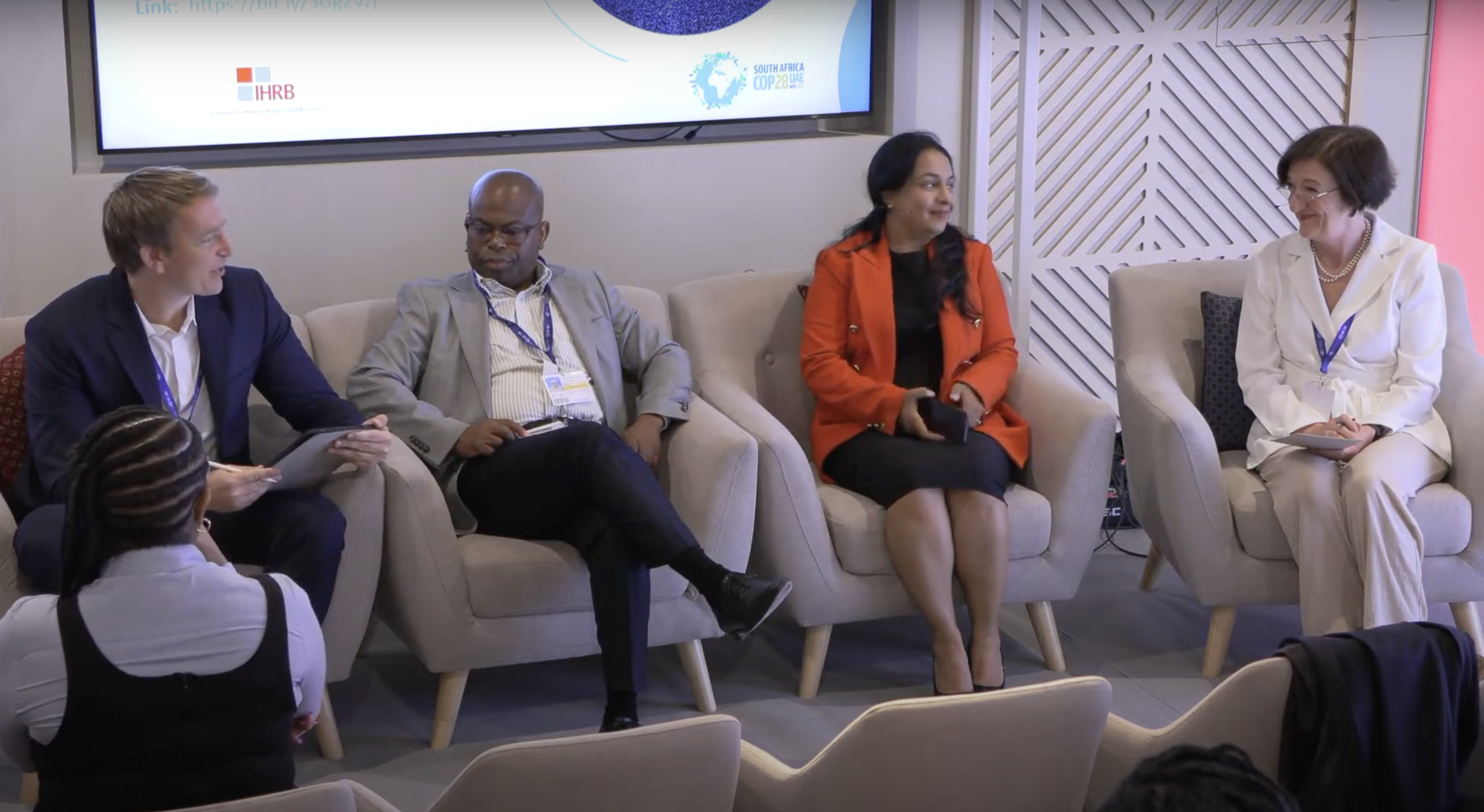A conversation with South African leaders from government, business, civil society, and philanthropy to unpack key questions around the role of private sector social performance standards across South Africa’s JETP value chain.
Speakers
- Alan Wallis, Senior Advisor, African Climate Foundation
- Haley St. Dennis, Head of Just Transitions Programme, IHRB
- Sue Lund Head, Just Energy Transition Investment Plan Projects Management Unit (JETIP PMU) in The Presidency
- Shameela Soobramoney, CEO, National Business Initiative (NBI)
- Claude Kabemba, Executive Director, Southern Africa Resource Watch
- Vuyiswa Sidzumo, Director, Southern Africa, Ford Foundation
Background
Just Energy Transition Partnerships (JETP) are fast becoming a go-to model for national-level decarbonisation initiatives. They are also a new, untested, and so far ad-hoc model with enormous implications for the human rights of local workers, communities, indigenous groups, and consumers.
Analysis of South Africa’s lessons learned so far, the most advanced of the JETP countries to date, have focused largely on the public finance dimensions of JETP formulation and technical initiation. However, it will be the private sector that ultimately delivers each JETP in the medium and long-term, both in terms of financing and industrial systems change.
This COP28 dialogue unpacks some of the key questions around the existing private sector social standards at play across South Africa’s JETP value chain (supply, demand, finance), as well as the related private sector actors, relationships, and feedback loops that drive the country’s energy system. The aim is to elevate discussion around the roles and responsibilities of the private sector to support delivery of the justice and equity outcomes envisaged in the JETP whilst also ensuring respect for human rights and prevention of adverse impacts in the process.
About the Co-Hosts
The African Climate Foundation (ACF): Established in 2020, ACF is the first African-led strategic grant-maker working at the nexus of climate change and development. We believe that change cannot be brought about by one party acting alone. We actively pursue, support and foster strong partnerships and platforms for collaboration. Through incremental sectoral, regional and national interventions, we adopt a two-track approach premised on high-level political and technical engagements while also building strong grassroots coalitions and movements. | www.africanclimatefoundation.org
Institute for Human Rights and Business (IHRB): IHRB’s mission is to make respect for people and planet part of everyday business in order to achieve a more just, regenerative global economy. We deploy a mix of human rights-based research, engagement, and collaborative action with businesses, governments, financial actors, and representatives of civil society in order to shape policy, advance practice, and strengthen accountability. We have developed a track record of independent analysis as well as constructive interventions and collaborative engagement with all constituencies, earning a reputation as a trusted organisation committed to working with all actors to identify practical solutions and approaches needed to effect positive change. | www.ihrb.org
The Ford Foundation: The Ford Foundation is an independent organization working to address inequality and build a future grounded in justice. For more than 85 years, it has supported visionaries on the frontlines of social change worldwide, guided by its mission to strengthen democratic values, reduce poverty and injustice, promote international cooperation, and advance human achievement. Today, with an endowment of $16 billion, the foundation has headquarters in New York and 10 regional offices across Africa, Asia, Latin America, and the Middle East. | www.fordfoundation.org





























The perception of ‘value’ needs to change if the World Bank’s mission is to succeed
Last week we attended the Spring Meetings of the World Bank and International Monetary Fund (IMF) in Washington, D.C. The annual IMF-World Bank meetings bring together finance ministers and central bankers from all regions as a platform for official...
26 April 2024 | Commentary
Commentary by Vasuki Shastry, Author, ESG/Strategic Communications Expert; International Advisory Council, IHRB Haley St. Dennis, Head of Just Transitions, IHRB